What is the best Ruby on Rails CMS?
Captain's log, stardate d39.y37/AB

You will probably land on this page looking for an answer to a question we ourselves had some months ago.
You want to choose a solid foundation for your next project, which requires a CMS, and you have very compelling reasons to do it in Ruby on Rails, but you don't know the existing options all too well.
Luckily for you, we have been testing the most popular CMS solutions in the market that have been built with Ruby on Rails for you.
In this blog post, I am going to analyse several Ruby on Rails CMS options. CMS stands for Content Management System, which, according to the CMS Wikipedia article:
A content management system (CMS) is a computer application that supports the creation and modification of digital content using a simple interface to abstract away low-level details unless required, usually supporting multiple users working in a collaborative environment.
Content Management Systems are therefore good options when you have got multiple users that will manage your web platform, or else they are not tech-savvy enough to update it without a graphical user interface.
In fact, there are lots of different CMS out there, one of the most popular being Wordpress, for almost every programming language there is. Wordpress, Locomotive, Drupal, OpenCMS are just a few of them, but you can find more options on this site: DMOZ.
Since we are a development consultancy that specialises in Ruby on Rails projects, we have had to study a good share of the available options for our clients. Although most of the times we build 100% tailored apps, we sometimes have to use prepackaged solutions like e-commerce (SpreeCommerce), static site generators (Jekyll, Middleman) and CMS (we usually choose Locomotive).
In this blog entry, I am going to talk about the following CMSs: Refinery, BrowserCMS, Locomotive, Mexican Comfortable Sofa and RadiantCMS.
One of the first options we evaluated is Refinery CMS, a 100% free and open source CMS. Refinery uses all the power of Ruby on Rails and it's compatible with its latest versions, as they claim on their website, but the truth is that the project hasn't been updated very actively, lately.
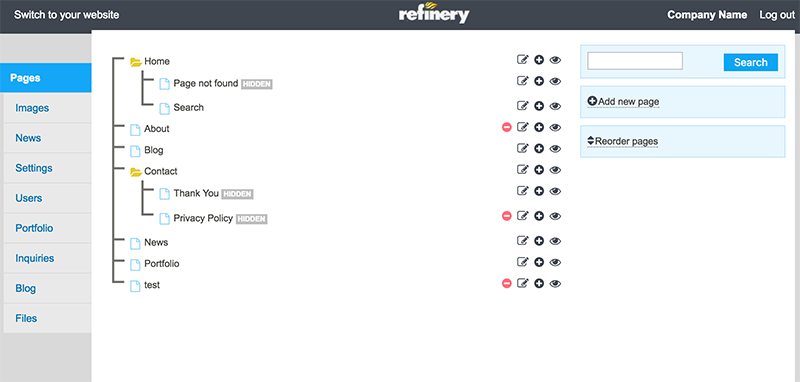
PROS:
CONS:
Summary: If you're looking for a very basic CMS that is free and easy to extend, with an active community, Refinery is your choice.
URL: Refinery CMS
Github: Refinery Github Repository
Demo: Refinery Demo
BrowserCMS is a discontinued project that has not been updated for over two years. Browser runs on Rails 3.2 and one of its main advantages is the flexible & extendable content API. As it is built on top of Rails, it's also easy to extend - if you're a Rails developer.
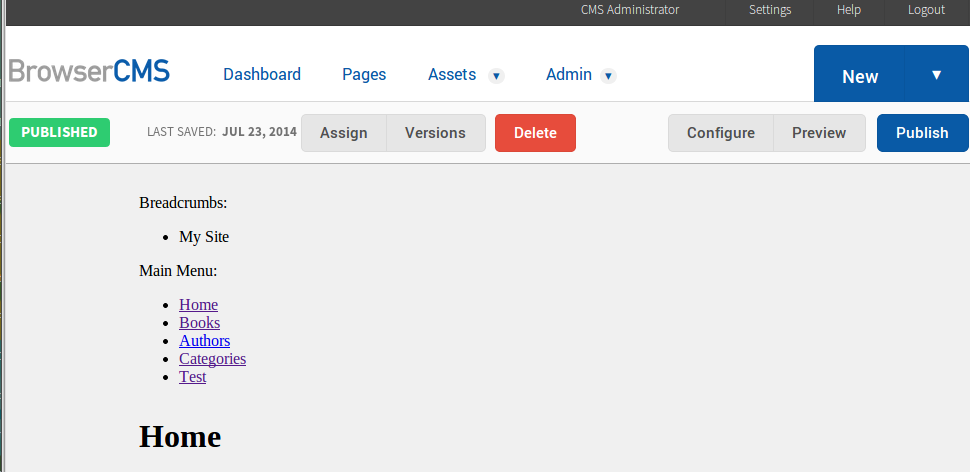
PROS:
CONS:
Summary: We do not recommend using deprecated and abandoned software when there are alternatives on the market.
URL: Browser CMS
Github: Browser Github Repository
No contest, Locomotive is the best CMS we have found and it has become our CMS of choice when our clients require a CMS-based solution.
Locomotive is an active project developed by an actual company, which has got a freemium model. In the free version, you download the software and install & configure it yourself, while in the paid version, all of that is managed by their platform, akin to the Wordpress model.
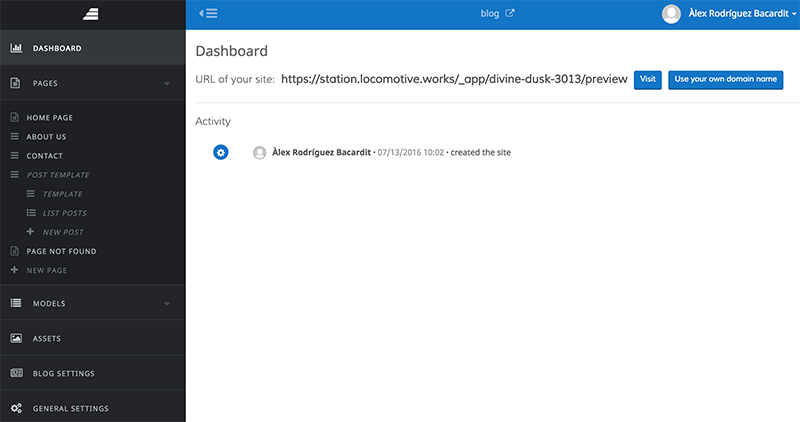
PROS:
CONS:
Summary: We think this is the best Rails CMS out there and use it extensively. It has been hard to find its weaknesses, and it is really flexible enough to extend it to your heart's content. The only drawback is that you're forced to use non-relational databases, but it's well worth it.
URL: Locomotive CMS
Github: Locomotive Github Repository
Demo: Locomotive Demo
Another popular CMS for the Rails community is the funny-named Comfortable Mexican Sofa. As a matter of fact, more than a commercial product, this one sprouts from the very community and only has its Github repository as a reference.
Comfortable Mexican Sofa is a tiny lightweight CMS that you can install in a matter of minutes as a gem into your existing project and customise it extensively to meet your needs.
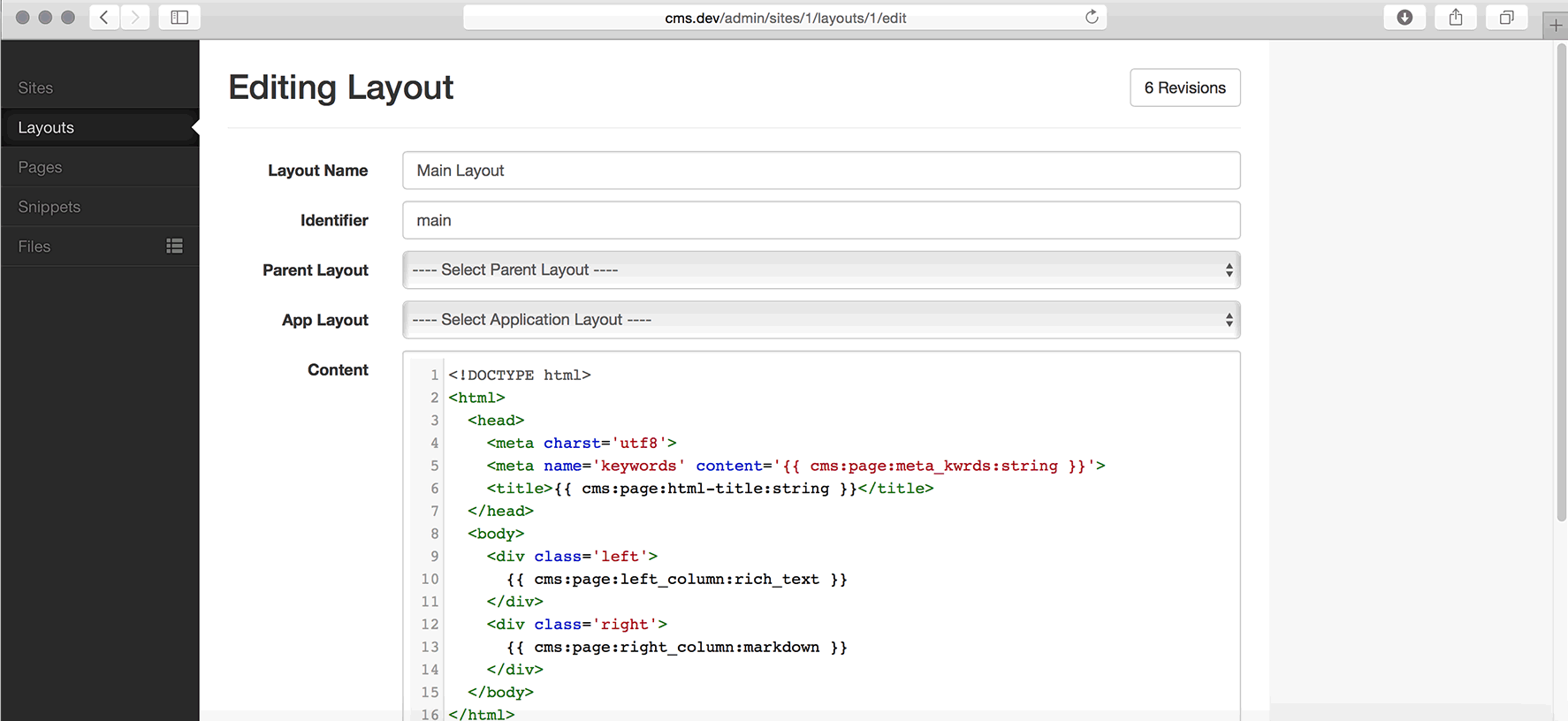
PROS:
CONS:
Summary: Comfortable Mexican Sofa is a great alternative to Locomotive if you need a barebones & micro-CMS with basic functionality. If Locomotive is too much then this is the most comfortable option (see what I did there?).
Github: Comfortable Mexican Sofa Github Repository
Last, but not least, Radiant CMS is another valid alternative to the bigger CMS options mentioned before. However, we feel this is really limiting and too simple for our taste. Further, the look & feel of the platform requires a severe upgrade to nowadays' UX standards.
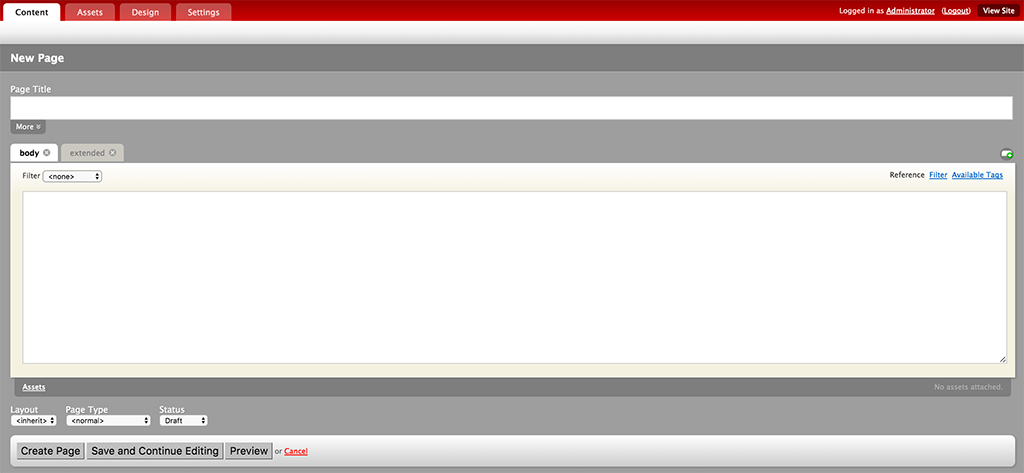
PROS:
CONS:
Summary: Although Radiant might be great for some really small projects, it is far from its competitors Comfortable Mexican Sofa and Locomotive and we, therefore, do not recommend it.
URL: Radiant CMS
Github: Radiant Github Repository
Demo: Radiant Demo
There might be other CMS options out there, but we have analysed some of the most used solutions according to different criteria: usability, look & feel, support for extensions, pricing or whether it's an actively maintained project, among others. For a more detailed and broader study, check Ruby Toolbox, where they categorise most of the CMS options out there according to interesting criteria such as the last commit, number of contributors or number of release, among others.
We have chosen Locomotive CMS as our standard CMS solution. The fact that it is actively maintained by a company gives the project more stability and thus earns more trust from our clients as a result. Even more so, when we present them with the companies that are currently using Locomotive as their CMS of choice.
Locomotive is definitely the only solution we would use to compete against Wordpress, should any of our clients want to move away from the PHP-based techstack.
For a more lightweight project, we could probably use Mexican Comfortable Sofa, as an alternative, integrated into our customised apps to ensure the best user experience for our client.
Do you use other content management systems we haven't analysed? Feel free to share them with us using the comments section below and we'll be happy to try them.
We believe that some projects require a strong foundation based on an already existing CMS solution in order not to reinvent the wheel. If you're interested in building a new project with any of the solutions described above, contact us for a free estimate of your idea!

Learn how to create landing pages that are secure, fast and SEO-oriented for free with Jekyll & Middleman
Read full article
Contrary to popular belief, developing your project using Ruby on Rails won't make it more difficult to maintain. It's a competitive advantage, nowadays.
Read full article
WordPress and LocomotiveCMS are two popular content management systems (CMS) that are often used for building and managing websites. Both have their own unique features and capabilities, and choosing the right one for your project can be a challenging decision. In this blog post, we will compare WordPress and LocomotiveCMS to help you make an informed decision.
Read full article